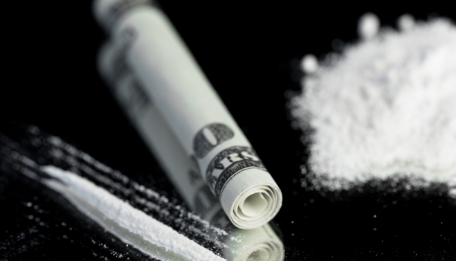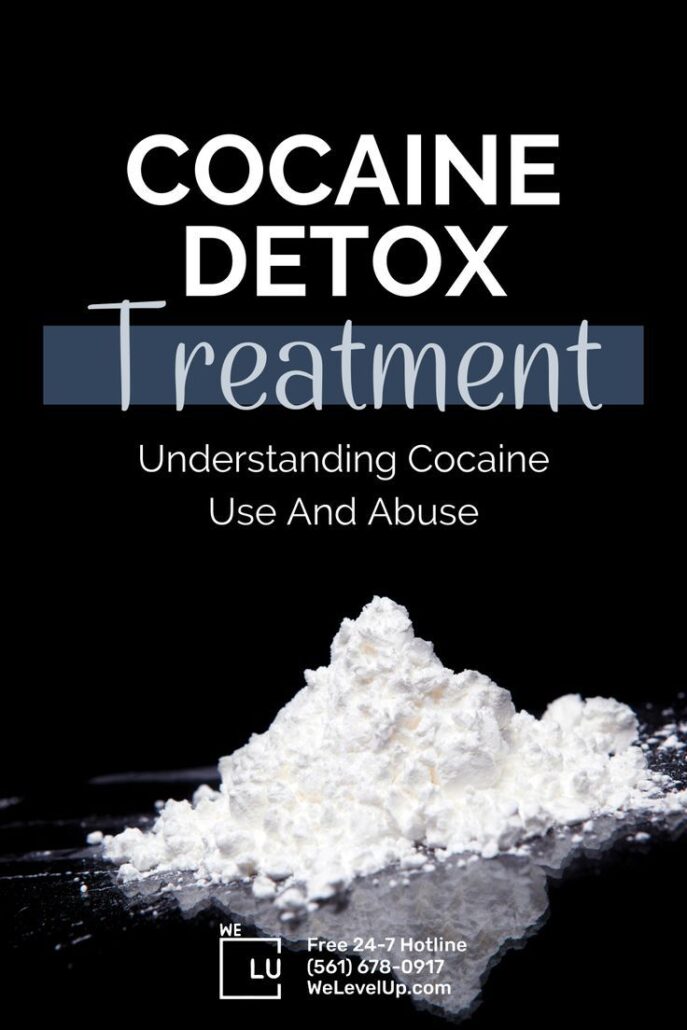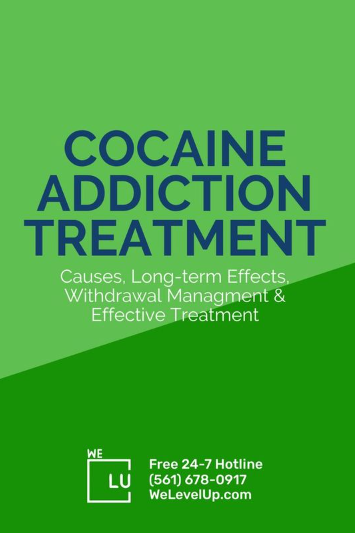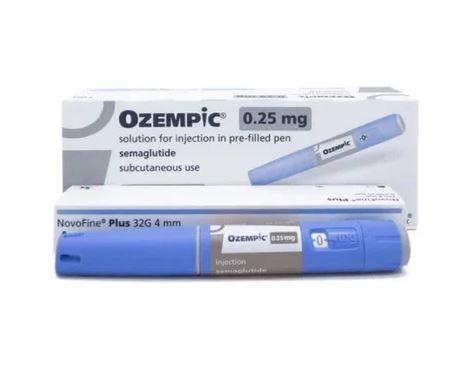Is Cocaine Addictive?
Cocaine, a drug with a strong psychological and physiological hold on users, has been ingested by humans for centuries. The natives of South America used it for medicinal and spiritual purposes, so they were well aware of its addictive properties. Cocaine is currently classified as a Schedule II drug in the United States, which means that despite its potential for abuse and addiction, it is recognized as having some legitimate medical applications.
Cocaine’s addictive properties stem from the chemical’s neurological impact. Cocaine is effective because it prevents the reuptake of the neurotransmitter dopamine. The result is a surge of dopamine in the brain, giving the user intense pleasure.
However, when the drug’s effects wear off, the brain’s dopamine and other neurotransmitters become depleted, triggering feelings of depression and anxiety. Cocaine users may feel compelled to continue using the drug to stave off the unpleasant effects of withdrawal.
Other factors, such as how and how much cocaine is used and an individual’s propensity for addiction, all play a role in the drug’s addictive potential. An increased risk of addiction is associated with routes of administration other than snorting, such as smoking or injecting cocaine. The risk of becoming addicted to cocaine increases with increased dose and frequency of use.
How Addictive is Cocaine?
Cocaine, commonly referred to as “coke,” is an extremely addictive drug that has a significant global impact. It’s a potent stimulant that raises dopamine levels in the brain, which results in euphoria and a burst of physical and mental energy. Cocaine may be considered a “party drug,” but its addiction can destroy lives and families.
Recognizing the telltale signs of a cocaine addict can be crucial if you or someone you know is struggling with dependency on the drug. Physical symptoms of cocaine addiction include elevated heart rate and blood pressure and behavioral symptoms like agitation, paranoia, and irritability. Cocaine addiction can cause psychosis, hallucinations, and delusions in extreme cases.
Coca users often try to hide or downplay the severity of their addiction, making it difficult to recognize the signs. If you or someone you care about is struggling with cocaine addiction, it is essential to get help. Cocaine addicts can recover and lead fulfilling lives with the help of treatment and community.
The physical and mental effects of cocaine, the characteristics of a cocaine addict, and the methods of treating cocaine addiction will all be discussed in this article.
Along with information on where to find professional help and support, we’ll offer advice on spotting and dealing with cocaine addiction in yourself or a loved one. This article will provide valuable insights into the complex and often devastating world of cocaine addiction, whether you are struggling with it yourself or trying to help someone else who is.
Signs Of Cocaine Addiction
Cocaine addiction symptoms differ from individual to individual. They could be influenced by the user’s propensity for addiction, substance use, frequency and duration of use, etc. However, some of the most typical indications of cocaine addiction are:
- Increased heart rate and blood pressure.
- Dilated pupils.
- Restlessness and hyperactivity.
- Insomnia
- Weight loss and decreased appetite.
- Excessive sweating.
- Nosebleeds and other signs of nasal damage (when the drug is snorted).
- Track marks or other signs of injection (when the drug is injected).
- Agitation, irritability, and paranoia.
- Mood swings and unpredictable behavior.
- Financial and legal problems.
- Social isolation and strained relationships.
- Neglect of responsibilities at work, school, or home.
The risk of becoming addicted to cocaine increases with the amount and frequency of use. Seek immediate professional assistance and support if you or someone you know exhibits symptoms of cocaine addiction. With help, addicts can recover from their disease and lead productive lives again.
In sum, cocaine is an extremely addictive drug that devastates the user and their loved ones. Its addictive qualities originate in the euphoric high and subsequent depression and anxiety it induces in the brain. Although it may be challenging to beat cocaine addiction, treatments available can help.

Skip To:
Learn More:
- Cocaine Detox
- Why Is Cocaine Addictive? Effects Of Drug Abuse & Treatment
- How To Get Cocaine Out Of Your System Safely, Detox, & Professional Help
- Working Out On Cocaine
- Cocaine Tolerance
- The Dangers Of Mixing Cocaine and Viagra, Effects, & Abuse
- Sex and Cocaine
- Cocaine And The Heart
- Slang Names For Cocaine
- How Long Does Cocaine Stay in Your System? How Long Does Cocaine Stay in Urine?
Get Help. Get Better. Get Your Life Back.
Searching for Accredited Drug & Alcohol Rehab Centers Near You? Or Mental Health Support?
Even if you have failed previously, relapsed, or are in a difficult crisis, we stand ready to support you. Our trusted behavioral health specialists will not give up on you. Call us when you feel ready or want someone to speak to about therapy alternatives to change your life. Even if we cannot assist you, we will lead you wherever you can get support. There is no obligation. Call our hotline today.
FREE Addiction Hotline – Call 24/7Popular Cocaine Addiction FAQs
-
Why Is Cocaine Addictive & Why Is Cocaine So Addictive?
The way cocaine alters neural circuits makes it highly addictive. Dopamine is a neurotransmitter associated with reward and pleasure, and its reuptake is blocked, which causes the desired effect. The result is a surge of dopamine in the brain, giving the user intense pleasure. However, when the drug’s effects wear off, the brain’s dopamine and other neurotransmitters become depleted, triggering feelings of depression and anxiety. Cocaine users may feel compelled to continue using the drug to stave off the unpleasant effects of withdrawal.
-
Is Cocaine Physically Addictive?
Cocaine does have a physiological dependency. Long-term cocaine abuse can alter brain chemistry in ways that make abstinence challenging. Physical symptoms of cocaine withdrawal include fatigue, depression, and intense cravings for the drug.
-
Is Sugar More Addictive Than Cocaine?
There is no definitive answer to this question because sugar and cocaine have different effects on the brain, and the likelihood of addiction varies from person to person. Sugar, like cocaine and other drugs, has been shown to stimulate the brain’s reward centers, but its addictive potential has been argued to be less severe.
-
Can You Get Addicted To Cocaine?
Cocaine addiction is real, unfortunately. Long-term and heavy drug use can alter brain chemistry, making abstinence challenging. Financial and legal issues, strained relationships, and difficulties at work or school are some negative outcomes that can result from a person’s cocaine addiction.
-
Is Cocaine Addicting?
Cocaine is extremely addictive, yes. Its addictive qualities originate in the euphoric high and subsequent depression and anxiety it induces in the brain. Although not all cocaine users become addicted, the likelihood of dependency rises with continued use. Seek professional help and support immediately if you or someone you know is struggling with cocaine addiction.
Cocaine Addiction Facts
Cocaine Addiction Overview
Cocaine is a powerful stimulant drug that can have harmful short-term and long-term effects on the body. It is usually snorted, smoked, or injected and can cause increased heart rate, elevated blood pressure, and potential damage to the cardiovascular system. Cocaine use can also lead to addiction, mental health issues, and social and legal problems. Seeking professional help is important for those struggling with cocaine use.
Cocaine Addiction Treatment
Cocaine addiction treatment can involve therapy, medication, and support groups such as cognitive-behavioral therapy, antidepressants, and Narcotics Anonymous. Individualized treatment plans should address the individual’s specific needs and may involve a combination of these approaches.
Cocaine Addiction Symptoms
- Increased tolerance.
- Cravings.
- Withdrawal symptoms.
- Financial problems.
- Legal issues.
- Social and relationship problems.
- Neglect of responsibilities.
- Increased heart rate.
- Elevated blood pressure.
- Constricted blood vessels.
- Potential damage to the cardiovascular system.
- Mood swings.
- Irritability.
- Anxiety.
- Depression.
- Paranoia.
If you or someone you know is experiencing these symptoms, seeking professional help for cocaine addiction is important.
Cocaine Addiction Statistics
Cocaine addiction is a serious issue that affects millions of people worldwide. Understanding the scope of the problem through cocaine addiction statistics can help raise awareness and promote effective prevention and treatment strategies. From the prevalence of cocaine use to the health and social consequences of addiction, examining the statistics related to cocaine addiction can provide valuable insights into this complex and pervasive problem.
1.5 million
An estimated 1.5 million people in the United States over 12 had used cocaine in the past month in 2020.
Source: National Survey on Drug Use and Health
16%
Cocaine was involved in 16% of all drug-related emergency department visits in the United States in 2019.
Source: SAMHSA
14.3 million
Globally, cocaine use disorders affect approximately 14.3 million people aged 15-64, with North America having the highest prevalence rate.
Source: UNODC

Get Your Life Back
Find Hope & Recovery. Get Safe Comfortable Detox, Addiction Rehab & Mental Health Dual Diagnosis High-Quality Care at the We Level Up Treatment Centers Network.
Hotline (877) 378-4154
Cocaine Addiction Treatment
Detoxification from cocaine entails cleansing the body of the drug and any traces of it that may have accumulated. For those who suffer from cocaine addiction, detoxification is the first and most important step to recovery.
Detoxing from cocaine can look different for different people, depending on their physical condition, their use of it, and other factors. Most programs for cocaine detox, however, share several common procedures.
Medical evaluation is the first step in cocaine detox. This is done so that a determination of the appropriate level of care can be made for the patient. Medical professionals will also assess the individual’s drug use history and other factors affecting the detox process.
Cocaine Addiction Help & Detox
After a thorough medical examination, the patient may be prescribed medication to ease the discomfort of withdrawal. Depression, anxiety, fatigue, and intense cravings are psychological and physical symptoms that can arise during cocaine withdrawal. Medications like benzodiazepines and antidepressants can alleviate some of the discomfort associated with withdrawal.
Cocaine detox typically involves medication, counseling, and other forms of therapy. Therapy may take the form of an individual session, a family session, or a group session. A person’s addiction may have been triggered by underlying emotional or psychological issues, and these therapies can help them work through those issues and learn coping mechanisms to control their cravings and keep them from relapsing.
Nutritional guidance, physical activity, and other holistic treatments may also be a part of cocaine detox. Restoring one’s physical health and bolstering one’s general well-being are two ways to aid healing.
How long it takes to get clean from cocaine can differ from person to person based on how dependent they are and how severe their addiction is. Detoxification can take a few days to several weeks or months for some people. After a period of detoxification, patients have the option of continuing their treatment with inpatient or outpatient rehab.
Detoxing from cocaine can be difficult on both the body and the mind. People need medical supervision and guidance from trained professionals to detox safely and effectively. However, detoxing from cocaine is possible and the first step to recovery with the right care and support.
First-class Facilities & Amenities
World-class High-Quality Addiction & Mental Health Rehabilitation Treatment
Rehab Centers TourRenowned Addiction Centers. Serene Private Facilities. Inpatient rehab programs vary.
Addiction Helpline (877) 378-4154Proven recovery success experience, backed by a Team w/ History of:
15+
Years of Unified Experience
100s
5-Star Reviews Across Our Centers
10K
Recovery Success Stories Across Our Network
- Low Patient to Therapist Ratio
- Onsite Medical Detox Center
- Comprehensive Dual-Diagnosis Treatment
- Complimentary Family & Alumni Programs
- Coaching, Recovery & Personal Development Events
Treatment For Cocaine Addiction
Options for Treatment For Cocaine Addiction
Cocaine addiction is a serious condition that requires professional treatment. There are several treatment options available for individuals struggling with cocaine addiction, including:
- Inpatient Treatment: Inpatient treatment involves staying at a residential treatment facility for a specific period of time. This type of treatment provides round-the-clock support, therapy, and medical care.
- Outpatient Treatment: Outpatient treatment is less intensive and allows individuals to continue their daily activities while regularly attending therapy sessions. It is typically recommended for individuals with mild to moderate addiction.

- Cognitive Behavioral Therapy (CBT): CBT is a type of therapy that helps individuals identify and change negative patterns of thinking and behavior. It is effective in treating cocaine addiction.
- Contingency Management: This type of treatment rewards individuals abstaining from cocaine. The rewards can be in the form of vouchers, cash, or other incentives.
- Medications: Currently, no FDA-approved medications specifically for treating cocaine addiction, but some medications can help manage withdrawal symptoms and cravings.
It’s important to note that everyone’s journey to recovery is unique, and what works for one person may not work for another. Seeking professional help from a qualified addiction specialist can help you determine the best course of treatment for your specific needs.
World-class, Accredited, 5-Star Reviewed, Effective Addiction & Mental Health Programs. Complete Behavioral Health Inpatient Rehab, Detox plus Co-occuring Disorders Therapy.
CALL (877) 378-4154End the Addiction Pain. End the Emotional Rollercoaster. Get Your Life Back. Start Drug, Alcohol & Dual Diagnosis Mental Health Treatment Now. Get Free No-obligation Guidance by Substance Abuse Specialists Who Understand Addiction & Mental Health Recovery & Know How to Help.
We Level Up Cocaine Addiction Dual Diagnosis Treatment
The definition of dual diagnosis (also referred to as co-occurring disorders) can differ between institutions. However, it is generally described as the specific treatment of someone diagnosed with a substance use disorder and a mental health disorder simultaneously. Treating dual-diagnosis clients is a critical aspect of our inpatient treatment experience because co-occurring disorders are strongly correlated with instances of substance abuse.
Creating a treatment plan that addresses the physical aspects of withdrawal, the psychological connection with drug use, and managing underlying mental health disorders is part of setting clients up for success. A thorough mental health analysis identifies possibilities for treatment. Meeting with mental health counselors and medical care providers means access to behavioral therapy and medication treatment. At our dual diagnosis treatment center, We Level Up can implement the highest quality of care.
We recognize the fragile complexities of how mental and substance abuse disorders can influence others and sometimes result in a vicious cycle of addiction. That’s why we offer specialized treatment for dual-diagnosis cases to provide the most excellent chance of true healing and long-lasting recovery.
Accepting that you may be living with a mental illness can be challenging. However, treating the presenting substance abuse case can be magnitudes easier once properly diagnosed and treated. Only a properly trained medical professional can diagnose these underlying conditions. If you believe you are suffering from a disorder alongside addiction, we urge you to seek a qualified treatment center to begin your journey to recovery. Call We Level Up Cocaine addiction detox centers today.
Experience Transformative Recovery at the We Level Up Treatment Center.
See our authentic success stories. Get inspired. Get the help you deserve.



Start a New Life
Begin with a free call to an addiction & behavioral health treatment advisor. Learn more about our dual-diagnosis programs. The We Level Up treatment center network delivers various recovery programs at each treatment facility. Call to learn more.
- Personalized Care
- Caring Accountable Staff
- World-class Amenities
- Licensed & Accredited
- Renowned w/ 5-Star Reviews
We’ll Call You
Cocaine Addiction Informative Video
The time that cocaine can be identified in urine, blood, and saliva drug tests may vary due to various factors. After the last use, cocaine and its byproducts can be found in the body for around 3 to 4 days and up to 2 days in blood or saliva. However, urine tests can detect cocaine metabolites for up to 4 days.
Search Is Cocaine Addictive? Cocaine Addiction Signs and Cocaine Addiction Treatment Topics & Resources
Sources
- National Institute on Drug Abuse (NIDA) – Cocaine: https://www.drugabuse.gov/drug-topics/cocaine
- Substance Abuse and Mental Health Services Administration (SAMHSA) – Treatment Locator: https://findtreatment.samhsa.gov/ Tags: Is Cocaine Addictive?
- National Institutes of Health (NIH) – Cocaine Addiction: https://www.drugabuse.gov/publications/research-reports/cocaine/what-cocaine Tags: Is Cocaine Addictive?
- U.S. Department of Health and Human Services (HHS) – Opioids: https://www.hhs.gov/opioids/ Tags: Is Cocaine Addictive?
- National Library of Medicine (NLM) – Cocaine Addiction: https://medlineplus.gov/cocaine.html Tags: Is Cocaine Addictive?
- National Institute of Mental Health (NIMH) – Substance Use and Addiction: https://www.nimh.nih.gov/health/topics/substance-use-and-addiction/index.shtml Tags: Is Cocaine Addictive?
- National Survey on Drug Use and Health (NSDUH) – Substance Use Data: https://www.samhsa.gov/data/data-we-collect/nsduh-national-survey-drug-use-and-health Tags: Is Cocaine Addictive?





